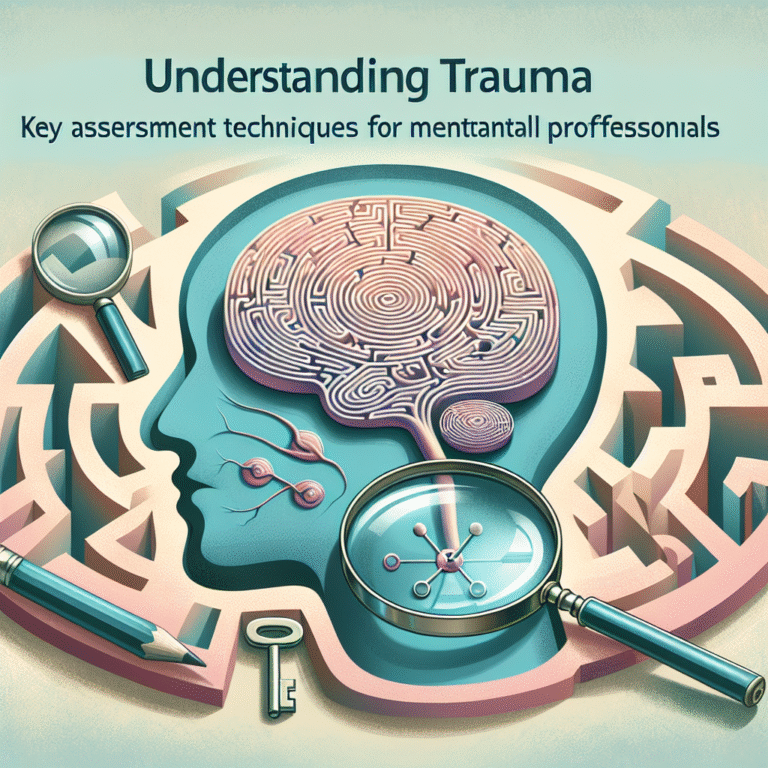
Introduction
In a society that often stigmatizes those who have committed sexual offenses, the role of family support can be both profound and transformative. Imagine a scenario where a person convicted of such crimes is met not with disdain but with understanding and care from their family. This notion may evoke mixed emotions, but it underscores a crucial element in rehabilitation: the importance of family support in the treatment of sex offenders. In this article, we will delve deeply into the significance of family involvement in the rehabilitation process, showcase real-world case studies, and provide actionable insights on how families can play a pivotal role in fostering positive change.
The Crucial Role of Family in Rehabilitation
Understanding the Family Dynamic
Family support serves as the bedrock for emotional and psychological rehabilitation. Research shows that individuals who maintain close family ties during incarceration or treatment are more likely to successfully reintegrate into society. This support system provides not just emotional comfort but also practical resources that assist in the healing journey.
Case Study: The Thompson Family
Consider the case of Mark Thompson, a man who faced a conviction for a non-violent sexual offense. His family, initially shocked and devastated, decided to approach the situation as a united front. They participated in therapy sessions with Mark, learning more about his struggles and the factors that led to his behavior. This active participation not only reinforced Mark’s commitment to change but also helped dismantle the stigma that had initially caused a rift in their family dynamics.
Analysis
This case demonstrates that the importance of family support in the treatment of sex offenders lies in open communication, understanding, and mutual growth. Mark’s family was able to affirm their love while also holding him accountable, creating a safe space for rehabilitation.
Emotional Stability and Accountability
Emotional stability is essential for anyone undergoing treatment. The journey of rehabilitation can be fraught with setbacks, and having family members to turn to can provide the necessary grounding. Apart from emotional support, families also play a crucial role in holding offenders accountable for their actions.
Table: Benefits of Family Support in Rehabilitation
| Benefit | Explanation |
|---|---|
| Emotional Support | Provides a safe space for sharing feelings and fears. |
| Accountability | Encourages ownership of actions and choices. |
| Practical Assistance | Offers resources, such as housing and job searches. |
| Reduced Recidivism | Increases likelihood of successful reintegration. |
| Improved Mental Health | Decreases feelings of isolation and despair. |
The Educational Component
Awareness and Understanding
Family members often lack knowledge about the underlying issues associated with sex offenses. Educating families on these matters is crucial in breaking the cycle of shame and secrecy. By understanding the mental health issues and societal pressures involved, families can foster a more supportive environment.
Case Study: The Johnson Family
In another compelling example, the Johnson family sought professional help to understand the psychological factors contributing to their son’s actions. They attended workshops focusing on sex offender treatment, gaining insights into the complex emotional landscape their son faced. Instead of reacting out of fear and anger, they could approach their son with empathy and informed perspectives.
Analysis
This case showcases the importance of family support in the treatment of sex offenders through education. When families are informed, they can better navigate their relationships with offenders, promoting healthier communication and reducing the stigma around mental health.
The Role of Families in Treatment Programs
Therapeutic Involvement
Family therapy is often a critical component of treatment programs for sex offenders. Involvement in therapy allows families to explore their dynamics, express their feelings, and address any trauma caused by the offense. This collective healing process can lead to more robust familial bonds.
Case Study: The Martinez Family
The Martinez family engaged in family therapy sessions as part of their son’s rehabilitation program. Through structured dialogue facilitated by a therapist, they discussed their feelings of betrayal, fear, and confusion. The therapy allowed for honest conversations that not only helped in their son’s rehabilitation but also repaired the fissures within their family unit.
Analysis
The Martinez family exemplifies how the importance of family support in the treatment of sex offenders is magnified in therapeutic settings. The process of therapy encouraged active listening, which can pave the way for healing and mutual understanding.
Communicating Boundaries and Expectations
Setting Healthy Boundaries
In some cases, victims may also be family members, complicating the rehabilitation process. It’s essential to communicate boundaries clearly and compassionately. Family members must express what they are comfortable with while also supporting the offender’s journey toward reform.
Case Study: The Reed Family
In the Reed case, a daughter was a victim of her father’s offense. Post-rehabilitation, both the father and daughter entered individual and family counseling to establish a new dynamic where both could feel safe. They discussed boundaries, the extent of interaction, and their emotional needs moving forward.
Analysis
The Reed family illustrates that while the importance of family support in the treatment of sex offenders is immense, boundaries must be navigated carefully. Open and honest communication fosters healing for both the victim and the offender.
Community Impact: Families as Advocates
Being a Voice of Change
Families can serve as advocates for effective treatment and prevention, working to eliminate societal stigma. This role is critical, as advocacy can lead to changes in policy and community perceptions, fostering a more supportive environment for rehabilitation.
Case Study: The Smith Coalition
The Smith family, after experiencing the repercussions of their son’s offenses, became advocates for education about sex offenses in their community. They organized workshops that focused on prevention, where families could learn about the signs of troubling behavior and the importance of early intervention.
Analysis
The Smith family demonstrates how the importance of family support in the treatment of sex offenders extends beyond personal rehabilitation. By sharing their story and advocating for greater awareness, they contributed to societal awareness and improved prevention efforts.
Conclusion
The importance of family support in the treatment of sex offenders cannot be overstated. Family involvement not only aids in emotional healing but also fosters accountability, restores relationships, and facilitates reintegration into society. While the challenges are great, the potential for positive change is even more significant. Families have the power to transform their loved ones’ journeys from one of stigma to one of hope and redemption.
In navigating this complex terrain, it’s crucial to maintain open lines of communication, set healthy boundaries, and engage in educational programs. By doing so, families not only heal themselves but also contribute to the larger narrative of restorative justice, ultimately fostering a more compassionate society.
FAQs
1. Why is family support crucial in the treatment of sex offenders?
Family support provides emotional stability, accountability, and practical resources. It helps individuals navigate their rehabilitation journey and lessens feelings of isolation.
2. How can families educate themselves about sex offenses?
Families can attend workshops, read literature, and engage in therapy that focuses on understanding the psychological and emotional aspects of sexual offenses.
3. What role does accountability play in family support?
Accountability helps offenders recognize the consequences of their actions, fostering a sense of responsibility and encouraging meaningful change.
4. Can family support reduce recidivism rates among sex offenders?
Yes, studies indicate that offenders with strong familial support systems are less likely to re-offend, thus promoting successful reintegration into society.
5. How should families approach boundary setting with offenders?
Families should engage in open and honest discussions about their comfort levels and expectations, ideally in a therapeutic setting, to ensure clear communication and mutual understanding.
The journey of rehabilitation can be complex and arduous, but with family support, it can also be a pathway to healing and restoration for all involved.


















